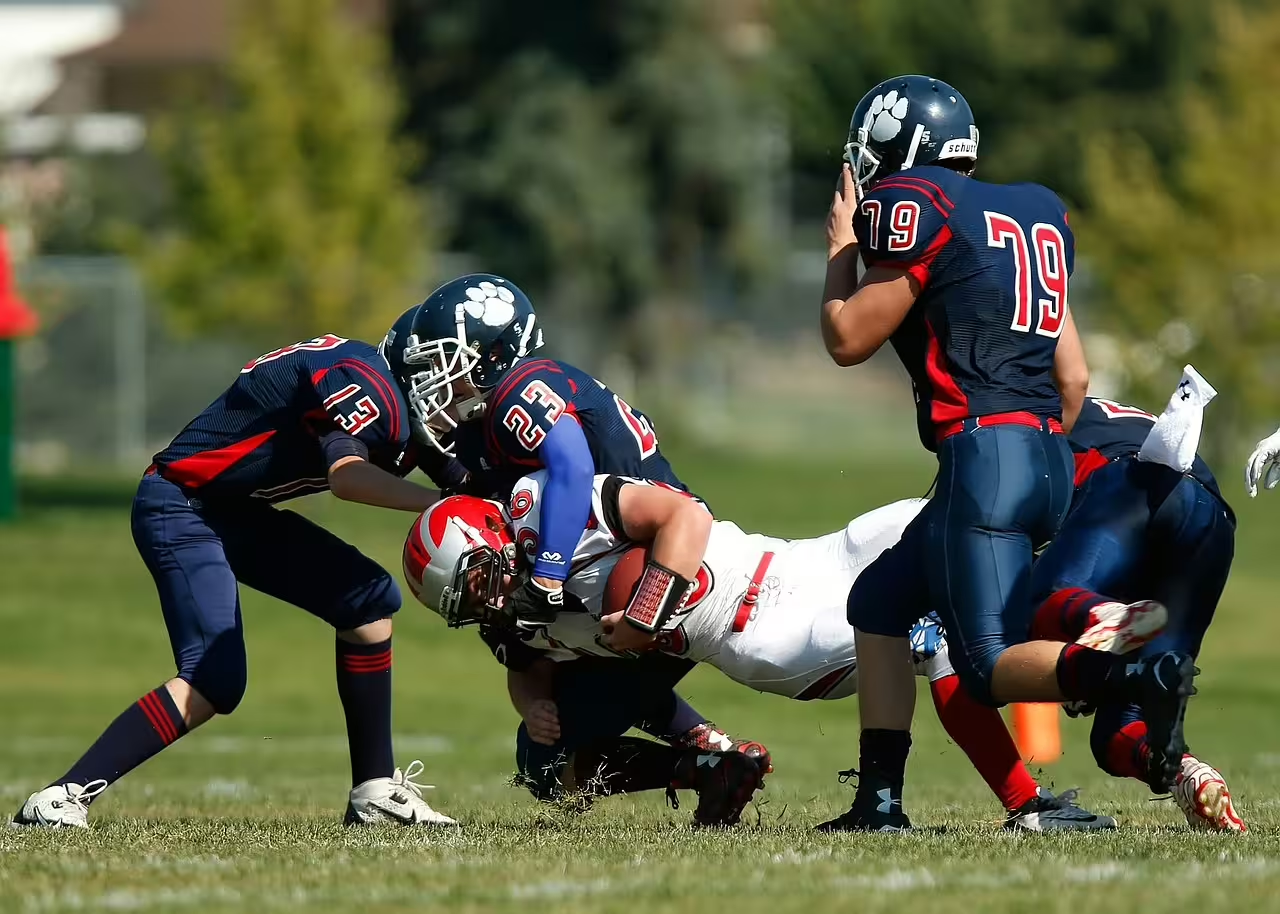Time management—the very phrase conjures up parental concern. And this isn’t just because so many adults have problems with our own time management, but because, when it comes to our kids, making time for each and every thing we need to do can often prove just as challenging. This difficult situation can become even more intense as our children age up into teens, entering high school and eventually working their way towards a college sports career.
Many student-athletes dream of competing at the college level many years before they first step onto campus…and that sort of works out well for our purposes, actually. You see, oftentimes, developing the time management skills they are going to need throughout their college experience begins in their high school or even middle school years.
Balancing academics, sports training, travel games, and a social life is undoubtedly going to be challenging, especially if your child also wants to be healthy, happy, and well-rested when all is said and done. In learning this delicate dance, it’s often the parents that have to show their kids the right steps. And if we do end up teaching these habits from an early age, then our children will end up being more confident about managing their own time, even before they arrive on campus.
In this guide, we will offer up some tried-and-true methods for managing time well. We will walk parents through the basics and explain why time management is so important for aspiring college athletes. Finally, we will talk about the most common challenges student-athletes tend to face in terms of time management, as well as ways to circumvent or overcome those issues.

Why Time Management Matters for Student-Athletes
By the time your young athletes have reached the high school level, chances are good they already know a thing or two about the difficulty of a sports/school/life balance. You might also be struggling to keep pace with the many games, practices, school assignments, and personal commitments that require your and their attention on a weekly basis. In college, those demands multiply and the consequences for falling behind in any of them become that much more severe.
According to studies done by the National College Athletic Association, the average Division I student-athlete spends more than 30 hours per week on sports-related activities. That is an awful lot of time to be playing sports, especially when one considers their full academic course load, social obligations, and any part time job they might have on top of all that! Frankly, if your college athlete doesn’t have a strong grasp of time management skills, there’s a non-zero chance they won’t just fail academically or burn themselves out in some detrimental way.
Good Habits, Good Health
Let’s be real, for a moment. Having good time management isn’t just about getting through college—it is a vital skill that all people need to learn if they want to succeed in the modern world. You need to know how to do it at your job, in your personal relationships, in higher levels of education, and if you end up becoming a professional athlete. No matter where life takes your child, they will need to learn how to properly prioritize, schedule, and stay organized.
This is also bound to be somewhat stressful for them, especially in the beginning. And that is precisely why we keep impressing upon readers the importance of teaching children time management skills from an early age; before they have to worry about the actual consequences of not finding that balance. Teaching children and young teens to plan ahead, break up tasks, and keep deadlines in mind, can help them to be less worried about all of that when the clock is actually ticking.
The Parental Role
Parents often have to walk a fine line between supporting their teen’s independent growth and taking it over entirely. We want them to find their way, while guiding them, but also helping them and making certain that they go the “right” way. See how confusing that can all be? (For those readers whose children are not yet teens, consider this a warning…the craziest phases are yet to come)
Despite what many of us think, a parent’s job isn’t to manage every detail of their teen’s schedule—it’s to provide tools and encouragement to our child, while impressing upon them the importance of accountability. Indeed, through every stage of our child’d development, we parents are hoping that they gain the independence and confidence they need to succeed in life. At this stage, we hope that confidence is used to manage their own responsibilities in an efficient, enriching way.
To that end, parents can help without micromanaging. We can model good habits by showing how we organize our own tasks and commitments. We can offer structure by providing calendars, reminders, or planners for them to use. We can ask the right questions and remind them about their responsibilities without overtly telling them what do to. All of these things can help, as can helping them to get enough sleep, nutrition, and leisure time.
As we mentioned earlier, there are tools out there that parents can offer to their kids to help. Digital calendars with reminders are an excellent, modern tool. Moreover, Google Calendar, iCal, and Outlook all sync across devices and send reminders to your teen’s phone; something they are likely never to be without.

The Challenges College Athletes Will Face
Parents whose children have not yet even scratched the surface of higher education might be wondering why all this is so important. The truth is, understanding the road that lies ahead is the best way to help prepare your teen and yourself for the big challenges that await them in the college arena. The most common challenges they might face in college include:
Increased Academic Rigor
Any college graduate can tell you that college courses often demand more reading, writing, and critical thinking than high school classes. In college, deadlines come faster and there is less time to dilly-dally. Meanwhile, college professors expect more self-motivation and regulation on the part of the student.
Intensive Athletic Commitments
Those same academic expectations also extend to sports. At the college level, practices, workouts, meetings, and travel can take up as much time as a full-time job. Thus, athletes must be ready to manage their time wisely, while simultaneously maintaining peak athletic performance. It aint gonna be easy, that’s for sure.
Limited Free Time
In all of this, social events, part-time jobs, and downtime can easily get squeezed out of the equation. This is why it’s so important that teens learn how to prioritize their commitments. They also need to make sure they have time to eat, sleep, and engage in enjoyable personal hobbies. All of this together will help them prevent mental, emotional, or physical burnout, but it’s definitely a task that needs to be honed.
Practical Time Management Skill Examples
Parents can help their teens to prioritize tasks by teaching them difference between what is urgent and what is merely important. For example, a paper due tomorrow is urgent and important; scrolling social media is neither. We know that they already know this, of course. But it certainly doesn’t hurt to remind them. Having a routine for your teens can also mitigate time spend “goofing around.” Constistency is often the key to success and culminating good habits. For example, a morning routine, a homework block in the afternoon, or some time to study each night can reduce decision fatigue and get them into a rhythm that they may end up carrying with them once they get to college.
Parents can also illustrate the division methodology. This refers to dividing large assignments or training goals into smaller, more digestible steps. For example, a 10-page research paper becomes: research → outline → draft → edit. This simple method can become a real life-saver once your child is on their own in their dorm. Finally, we need to teach our kids how to say no to certain things. If your child has a paper due or a big game on Saturday, then they might have to decline an invitation to go out Friday night. We’re not saying this has to happen every week, but when time doesn’t permit, then we might have to put our foot down. More importantly, our teens need to learn that they too can decline when needs must; and as politely as they can.
The Transition into College Sports
The summer before freshman year is likely to be the perfect time to really amp up your teen’s time management habits. Parents can encourage their kids to create a “mock schedule” with workouts, chores, part-time jobs, and study blocks all in place. They should also include some measure of downtime or socializing time in this schedule too, as to not do so would be highly impractical.
Read their schedule together and if need be, help your teen practice emailing coaches, teachers, or professors about conflicts, travel schedules, or assignments. They are heading into the adult world and in that world, clear communication is the key to working things out. That all said, by the time senior year of high school comes along, parents should be stepping back some. At this age, you need to let your teen manage their own commitments, while offering only the most minimal of reminders. This way, they will be more prepared for the solo life they are about to begin in college.

Cultured Athlete Says…
As you can see, teens can learn a great deal about time management on their own, but most of those lessons will stem from the examples of their parents. Helping your teen to learn basic time management skills will be one of the greatest gifts you can give them. Indeed, as they prepare for college athletics, the lessons they learnt along the way will be instrumental in keeping that delicate balance between sports and academics that many college students ultimately struggle with. All you need to do is model the proper behavior and help them to keep perspective. Do these things, and you’ll all be better equipped for the college days to come.
Discover more from CulturedAthlete
Subscribe to get the latest posts sent to your email.






